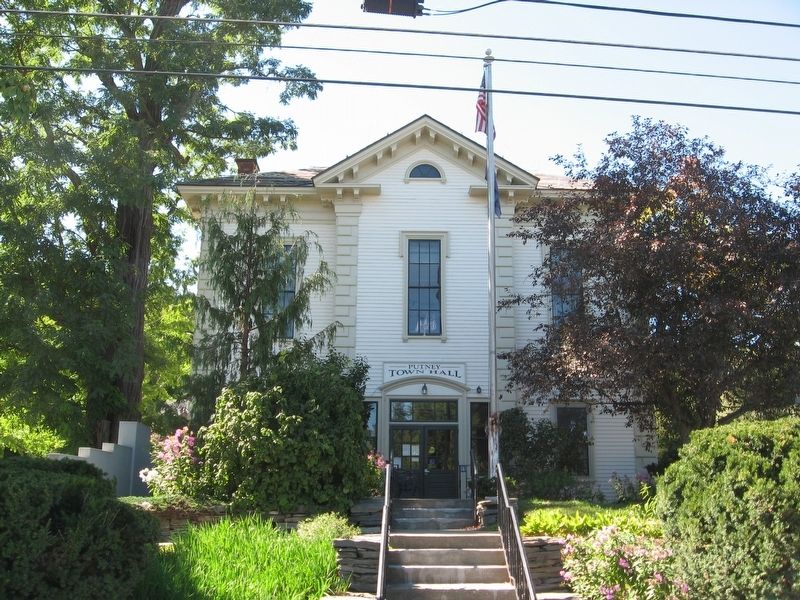
Putney Historical Society as Community Developer
Photo by Michael Herrick, via the Historical Marker Database (hmdb.org)
Putney Town Hall to be PHS’s Third Building Project
While many historical societies focus on archival collections and lectures about local characters, the Putney Historical Society has found itself frequently taking on a community development role. After rebuilding and finding an operator for the Putney General Store, PHS took on an unused church in the village center, transforming it into a space suitable for events and performances. The collection of community members who partnered with PHS on this project ultimately became Next Stage, which is now a vibrant arts hub for the region.
Not content to rest on its laurels, the historical society now has its sights set on the Town Hall. In partnership with the Town of Putney, PHS will rehabilitate the 1871 building, with an emphasis on getting the second floor back into regular use, as well as upgrading the first-floor town offices. Long disused due to lack of heat and accessibility accommodations, the expansive, light-filled upper floor contains a stage (complete with historic theater backdrops), a balcony, and a large open space with 18-foot ceilings and gloriously large historic windows. The historical society plans to enclose the balcony and use it as storage and part of the stage as offices, keeping the larger space open for meetings, events, archival research, and collection displays.
Due to the historical nature of the building, along with the necessary accessibility, efficiency, and heat upgrades the project cost will likely come it at $1.5M-$2M.
So what does a small, volunteer-led historical society do when millions of dollars are needed? They get resourceful, make a thoughtful plan … and build a funding stack.
The PHS partnership with the Town of Putney allows the project the potential to access the state’s Municipal Energy Resilience Program (MERP), which can provide a thorough energy assessment along with project management through Windham Regional Commission – and, of course, that all-important funding. However, with MERP grants topping out at $500,000 per town – for all municipal buildings – other significant sources will be needed. The historical society is investigating grants through the Preservation Trust of Vermont, USDA Community Facilities, Community Development Block Grants, and the Vermont Arts Council’s Cultural Facilities program. BDCC was able to supply a $5,000 USDA Community Facilities Technical Assistance grant to help with updating 15-year-old building plans and getting a cost estimate.
Even with PHS treasurer Lyssa Papazian, an experienced grant writer and fundraiser, at the helm of the project, this is a complex funding stack for a volunteer organization to manage. Wisely, the organization plans to include a project manager as part of the project cost, who will make the process much smoother and more efficient – not to mention much more likely to be completed successfully. Karen Astley, the town manager, also recognizes the need to budget for a town grant writer.
The road ahead is long, and each piece of the project will take patience and persistence, but PHS has been through it before, and the results – in added value to the community – have paid off magnificently. We expect the Town Hall project to be no different.



